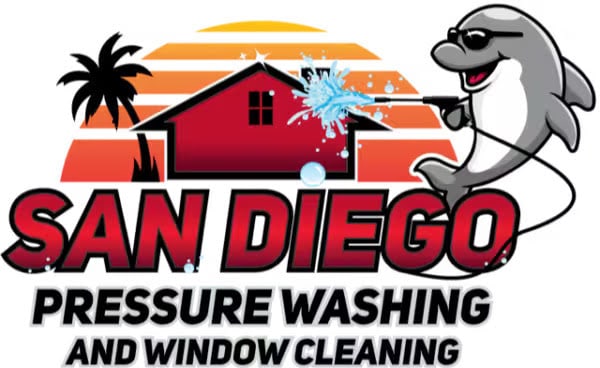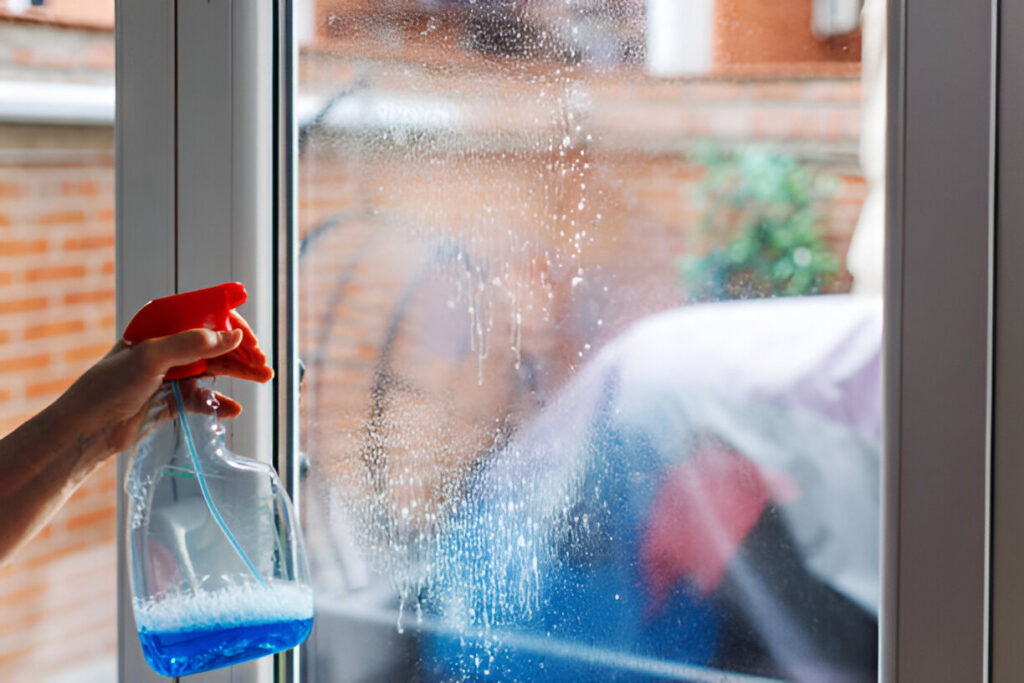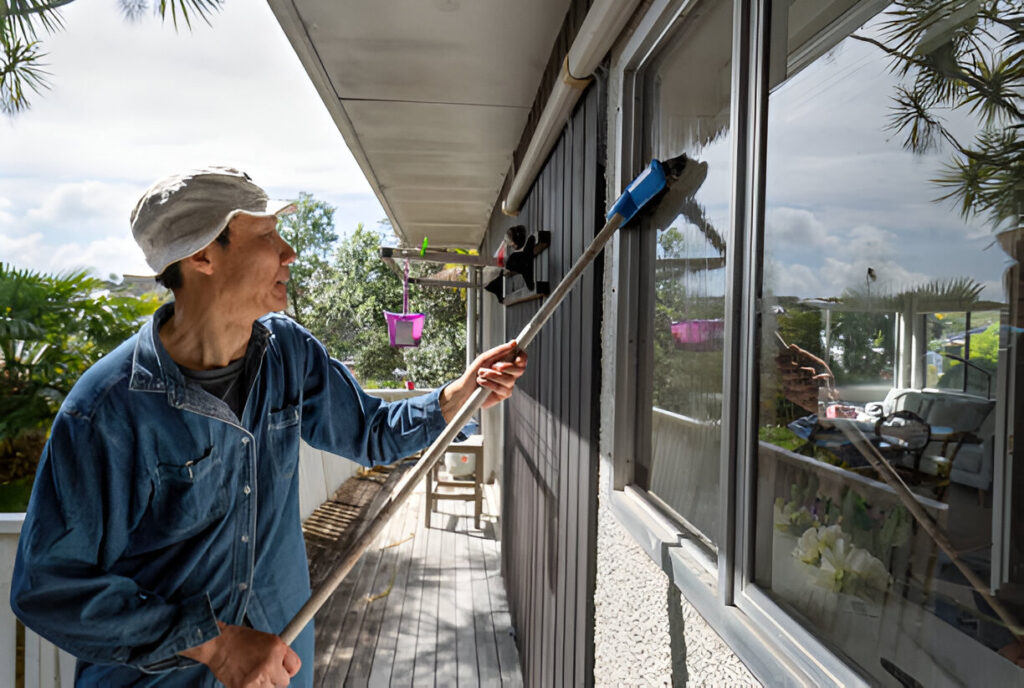Crystal-clear windows are a symbol of a well-kept home, yet streaks and smudges can make even the cleanest house appear untidy. Many homeowners turn to store-bought glass cleaners, but these often contain harsh chemicals and come at a higher cost. The good news? You can easily create your own effective, affordable, and eco-friendly DIY glass cleaner with ingredients you likely already have at home.
Key Takeaways
- DIY cleaners are cost-effective, eco-friendly, and safer.
- Vinegar cuts grime; alcohol dries streak-free; cornstarch prevents streaks.
- Essential oils add fragrance; lemon juice tackles grease and stains.
- Use microfiber cloths, clean on cloudy days, and start with tracks.
- Store alcohol safely; handle essential oils sparingly.
- Try vinegar, alcohol, cornstarch, or dish soap-based cleaners.
- DIY solutions reduce environmental impact and packaging waste.
- Professional services can handle tougher cleaning tasks.
Effective Glass Cleaners DIY
Making a DIY glass cleaner isn’t just about saving money, it’s about knowing exactly what goes into the bottle you’re using. Each ingredient in these homemade solutions serves a specific purpose, ensuring your windows shine streak-free –
Vinegar
Vinegar is a naturally acidic glass cleaner that cuts through grime and eliminates streaks. Generally, using vinegar is safe, but sometimes its odor can be overwhelming. Ensure proper ventilation while using it. And store it in a cool, dark place. Use a lint-free cloth or newspaper, start at the top of the window to avoid drips, and spray just as you would any glass cleaner. When cleaning a mirror, spritz the cloth instead of the mirror to avoid possible damage to the frame.
Isopropyl Alcohol
Isopropyl alcohol, commonly known as rubbing alcohol, evaporates quickly, aiding in streak-free drying. It also has disinfectant properties, making it effective in sanitizing surfaces. It is flammable, so keep it away from open flames and heat sources. When it comes to storing, store it in a tightly sealed container in a cool, dry place.
Essential Oils
Essential oils, such as lemon or lavender, add a pleasant fragrance to your natural glass cleaner. Some oils also possess antibacterial properties, enhancing the cleaning power. They are potent and should be used sparingly. Avoid direct skin contact with them. Keep them dark glass bottles away from sunlight to preserve their integrity.
Cornstarch
Cornstarch acts as a gentle abrasive, helping to remove stubborn spots without scratching the glass. It also prevents streaks by interfering with the water’s surface tension. Ensure cornstarch is fully dissolved in the solution to prevent clogging spray bottles. Store in a dry place to prevent clumping.
Lemon Juice
Lemon juice contains citric acid, which effectively cuts through grease and adds a fresh scent. It’s particularly useful for tackling hard water stains. Lemon juice can cause skin irritation in some individuals. So, you must wear gloves if necessary. Store in the refrigerator to prolong freshness.
Dish Wash
A few drops of dish soap can help break down oily residues and enhance the cleaning power of your solution. Use mild dish soap to avoid leaving behind a soapy film. Keep in a cool, dry place away from children.
Warm Water
Warm water serves as the base for your cleaner, helping to dissolve other ingredients and loosen dirt on glass surfaces. Use distilled or filtered water to prevent mineral deposits on the glass. Prepare solutions in small batches to maintain effectiveness.
Top DIY Window Cleaners
Some popular DIY glass cleaners are –
Vinegar-Based Glass Cleaner
Mix 2 cups water with 1/4 cup of white vinegar to make a vinegar-based DIY glass cleaner. You can add 5-10 drops of essential oil for fragrance, and your homemade window cleaner with vinegar is ready. Spray onto the glass surface and wipe with a lint-free microfiber cloth in a Z-shaped motion to prevent streaks. Clean windows on a cloudy day to prevent the solution from drying too quickly, which can cause streaks.
Rubbing Alcohol-Based Glass Cleaner
Mix 1 cup water with 1 cup rubbing alcohol in a spray bottle. Add essential oil for a pleasant scent. The alcohol ensures rapid drying, reducing the chance of streaks. Remember that rubbing alcohol is flammable, so use it with caution.
Cornstarch-Based Glass Cleaner
Mix 1/2 cup white vinegar, 1/2 cup rubbing alcohol, two tablespoons cornstarch, and 4 cups warm water. Combine all ingredients in a spray bottle. Shake before use.
Dish Soap-Based Glass Cleaner
This natural cleaner is made with 2 cups water, ¼ cup white vinegar, and 1/2 teaspoon dish soap. Put the mixture in a spray bottle. It is ideal for kitchen windows where grease buildup is common. Use it sparingly to avoid a soapy residue.
Why Choose Homemade Window Cleaners?
Opting for DIY window glass cleaners offers several advantages –
Cost-Effectiveness
Homemade cleaners utilize common household items, significantly reducing the cost compared to commercial products.
Eco-Friendly
By using natural ingredients, you minimize environmental impact and reduce the release of harmful chemicals into waterways.
Reduced Chemical Exposure
Creating your own cleaners allows you to control the ingredients, decreasing exposure to potentially harmful substances found in some store-bought products.
Tips for Cleaning Windows
Creating the perfect natural cleaner is only half the battle — the magic lies in how you use it. A few smart techniques can take your glass from grimy to gleaming in no time.
Buff Away Dust
Before spraying your cleaner, wipe down your windows with a dry microfiber cloth or soft duster. This removes surface dust and prevents smudging when the solution is applied.
Wait for the Right Weather
Avoid cleaning windows on sunny, hot days — the cleaner may dry too fast, leaving behind streaks. Instead, pick a cloudy day or clean in the early morning/evening when the sun isn’t too intense.
Start with the Tracks and Frame
Don’t ignore the dirty details. Begin by cleaning the window tracks and frames using a vacuum or an old toothbrush with a bit of soapy water. A clean frame ensures no grime runs down your freshly cleaned glass.
Clean Interior and Exterior Windows
It’s easy to forget the outside, but it’s often where the real dirt lives. Use separate cloths or squeegees for indoor and outdoor surfaces to avoid cross-contamination and get a clear view from both sides.
Conclusion
DIY window cleaners are an incredible alternative to store-bought solutions, offering cost savings, safety, and eco-friendliness. So the next time your windows need a little TLC, skip the store and raid your pantry instead. With vinegar in your bottle and a sparkle in your eye, you’re just a spray away from clarity.
Still seeing streaks no matter what you do? Or maybe you’re dealing with grime that’s beyond a DIY fix? That’s where the professionals come in. At SanDiego Pressure Washing, we don’t just clean — we restore. From cloudy glass to moldy driveways, our team is armed with eco-friendly solutions and high-powered equipment to make your space shine like new. Contact us and know more!
Frequently Asked Questions
What is the best homemade cleaning solution for windows?
A mix of vinegar, water, and a few drops of dish soap makes an effective and affordable window cleaner.
How do you make streak-free glass cleaner?
Combine equal parts vinegar and water with a splash of rubbing alcohol for quick drying and zero streaks.
Which cleans better, vinegar or alcohol?
Vinegar cuts through grime naturally, while alcohol dries faster and is great for disinfecting—combine both for the best results.
What other surfaces can you clean with vinegar?
Vinegar works wonders on countertops, sinks, shower glass, and even tile floors—just avoid using it on natural stone like granite or marble.


